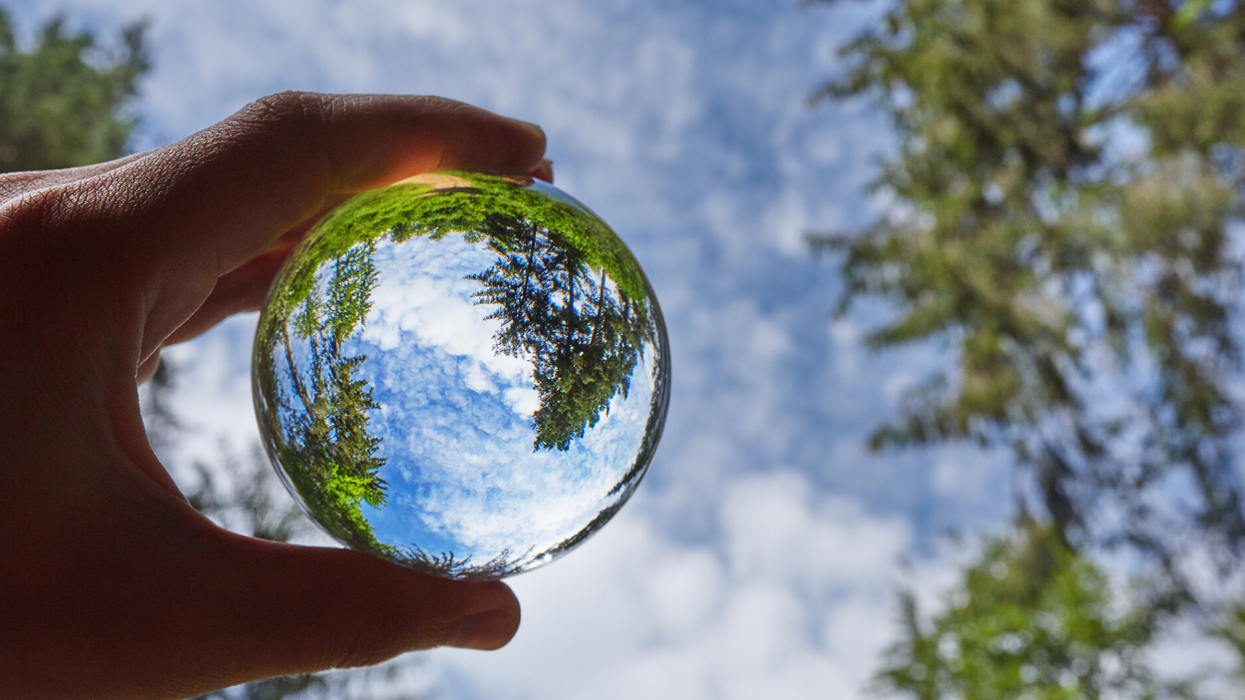News
Indy100 Staff
Apr 22, 2020

iStock
Today is the 50th anniversary of Earth Day, and one of the strangest yet as most of the world is in lockdown and unable to actually enjoy much of the planet at all.
And it's not just people who are impcted. There are a number of ways — good and bad — that the environment has been affected by the global lockdown.
From extensive working from home around the world, to stalled emissions from lack of air travel, the earth is beginning to look completely different just in these past few months than it has for decades.
Here are a few of the biggest changes:
Air pollution has dropped
Satellite images have already shown dramatic reductions in nitrogen dioxide (NO2) in China, northern Italy, and around the world due to strict public health measures which have caused a sharp reduction in travel.
According to the Global Carbon Project, global carbon emissions were expected to rise this year, but instead might fall by around five per cent – or 2.5 billion tons, the lowest levels seen since the recession a decade ago.
Cleaner water
The flora and fauna of the Venetian canals have been caught on video as the lack of boats on the waterways leaves the water to clear and natural life to thrive.
More animals are returning to natural habitats
In Llandudno, Wales, a herd of goats have been making the most of the deserted streets by flocking to its empty town centre. With humans out of the way, the goats were able to freely explore the area (and enjoy grazing on trees) in peace.
Town councillor Carol Marubbi told the BBC the "curious" animals are "wondering what's going on like everybody else."
In Thailand, they have seen the largest number of nests of rare leatherback sea turtles in two decades on beaches bereft of tourists because of the coronavirus pandemic.
It's easier to detect earthquakes
Since people in many countries were barred from leaving their homes and factories and traffic ground to a halt, seismic noise – the hum of vibrations in the planet’s crust – has dropped.
The researchers told The Independent the change will make it easier to detect earthquake signals, because of the lack of vibrations factories, cars, trains, buses and people going about their daily lives produce background noise that makes Earth’s crust move.
BUT... while many lockdown measures have improved the environment, some negatively impacting the environment as well.
Additional waste from single-use equipment
Coffee chain Starbucks decided to stop accepting reusable cups from its customers — only serving drinks in disposable single-use cups that are not yet recyclable in a bid to prevent the spread of the virus. This is a common theme as restaurants and cafes are only open for take-away services, so people are using more disposible containers than ever.
Meanwhile, China is drowning under medical waste including face masks and single-use tissues. Single-use medical items that have been in contact with infected patients must be burned to prevent further contamination that could occur during recycling, according to Politico.
Conservation groups fighting for survival
The Wildlife Trusts and the Wildfowl & Wetlands Trust (WWT) both told i News they are facing collapse within just a few months without government support.
Climate change is not on the main political agenda
The European Parliament cancelled a debate on the EU’s new Climate Law to minimise people’s exposure.
“Meetings are being cancelled but important decisions should not be delayed,” said Anton Lazarus of the European Environmental Bureau. “The corona crisis cannot be allowed to slow down action to tackle climate and ecological crises,” according to Politico.
To address this, Swedish climate activist Greta Thunberg has urged her followers via social media to shift the ongoing Fridays for Future protests online.
Top 100
The Conversation (0)













